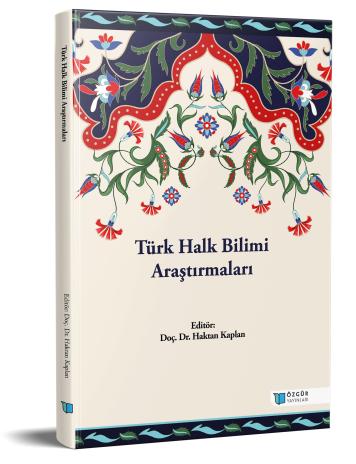
Reflections of “Yılkılık” Tradition to Turkish Literature
Chapter from the book:
Kaplan,
H.
(ed.)
2025.
Turkish Folklore Studies.
Synopsis
This book section traces the tradition of yılkılık, which is not easy to obtain information about in Turkish folklore. The tradition of yılkılık refers to the horse shepherds who raised the yılkı horses in herds in Central Asia and aimed to raise them for the army in general, and the customs and behavioral characteristics related to the yılkı horses. It is understood that in the past, the yılkı horses were raised in herds in nature under the leadership of a shepherd and a horse at the head of the yılkı, and that the Turks forgot the tradition as a result of abandoning their nomadic lifestyle and adapting to settled life. The values represented by the forgotten profession of horse shepherding in the world of faith and the process of domesticating horses and transforming them into warriors' companions are encountered in the oral culture products of the Turkish world, especially in epics. This article first traces horse shepherding and the yılkı horses raised in herds in various epics of the Turkish world. In the selected epic narratives in question, it was realized that horse shepherding was a profession that the alpine warrior had to learn in the process of becoming an epic hero. It has been understood that in epics, a parallel is established between a hero's ability to herd the horses of the yild and his ability to maintain control over his people and principality/state. It has been determined that there are scenes in various epics of the Turkic world where the hero learns to herd horses before participating in battles during his upbringing. In addition, it has been revealed that horse herding has mythological functions in the pre-Islamic belief systems of the Turks. In the last section of the article, the information provided by Cengiz Aytmatov about the tradition of the yild in his novel Elveda Gülsarı, which was first published in 1966, is evaluated and it is discussed why the author aimed to write a novel centered on the folklore element in question. By revealing the difficulties of continuing the forgotten tradition of horse herding in a Socialist state and focusing on the oppression experienced by the Kyrgyz Turks, Aytmatov aimed to raise awareness in the reader about the oppressions that the Soviet regime applied to the peoples of the Turkic World in terms of keeping their identities and cultures alive. Aytmatov aimed to transfer a forgotten tradition to the next generations through fiction and to make it alive again in the minds of his readers.

